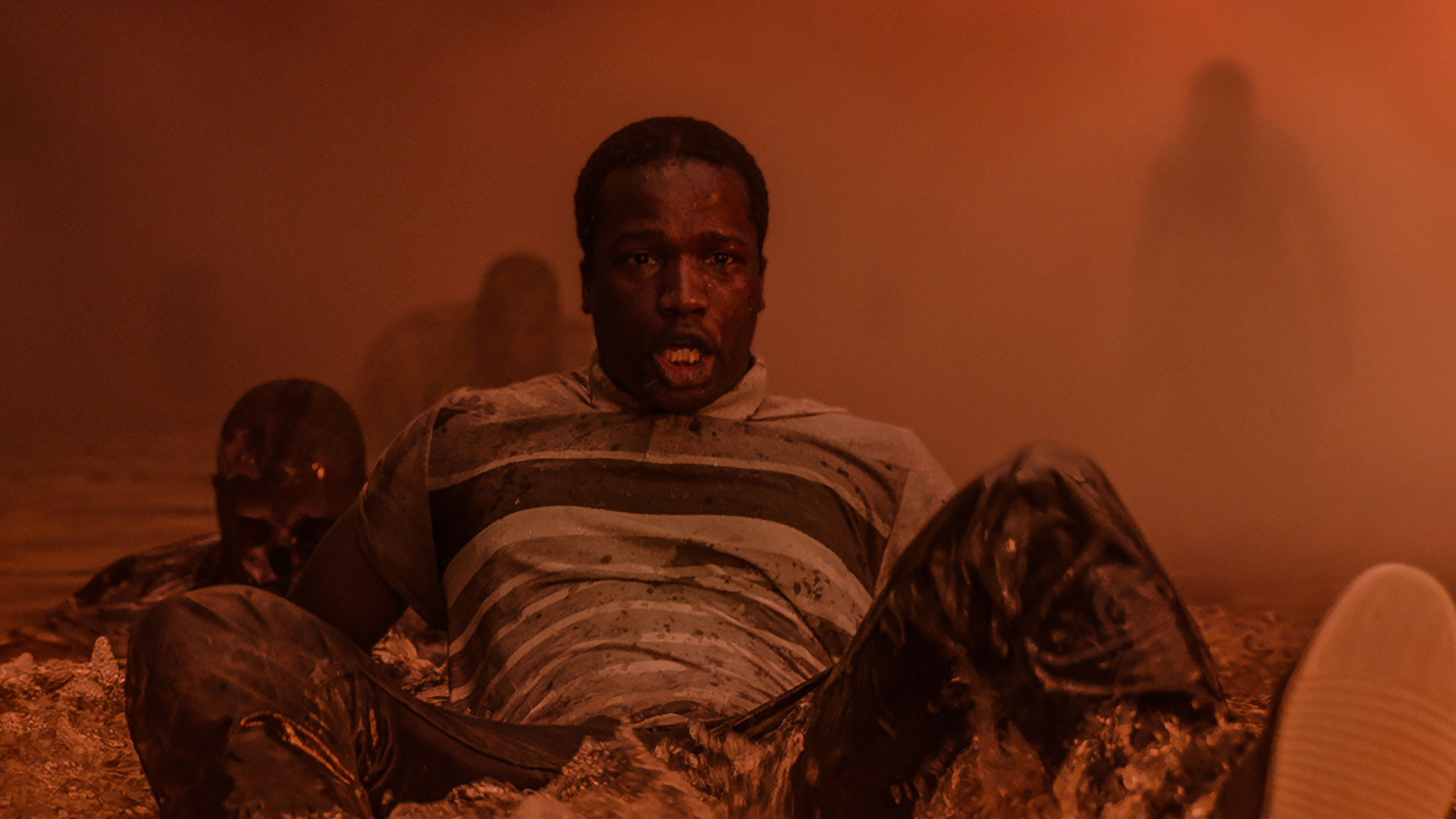What to Watch Verdict
'His House' nails the haunted house jolts, empowers its drama through cultural resonance and finds subgenre invigoration by giving a megaphone to the voiceless as horrors look no further than realities lived daily.
Pros
- +
🏠 Scares that rattle.
- +
🏠 Sope Dirisu's battle against demons.
- +
🏠 Wunmi Mosaku's unwillingness to forget.
- +
🏠 Something old becomes something bold.
Cons
- -
🏠 Might take a second to recalibrate during flashbacks.
As 2020 barrels forward, Remi Weekes’ His House further demonstrates my thesis about how international spotlights continue to reinvigorate modern horror. It’s a British production, but roots itself in impoverished, conflict-dangerous African communities and migrant traumas. Weekes redecorates the ever-inhabited haunted house blueprint but tells a supremely horrific immigration tale that is wholly unique to its cultural flavors. At the intersection of horror and national experience exists stories that do more than populate duplexes with paranormal activity, in ways that issue an agency to perspectives lost on most whitewashed narratives of another estate built upon some ancient burial ground. That’s not to say the subgenre has since crumbled in condemnation (James Wan excels, The Witch In The Window rules, etc.), but more how cries for “originality” can be answered through foreign representation, permitting audiences and studios actually allow for such differences to exist on-screen.
Weekes’ bewitching screenplay, story credits to Felicity Evans and Toby Venables, centers on two refugees who flee their war-torn village for a slice of the U.K.’s democratic freedoms. Bol (Sope Dirisu), a former bank employee, and his wife Rial (Wunmi Mosaku) transfer from a storm-tossed boat packed with refugees, to an institutional detention center, to their dilapidated apartment where they’ll be tested for citizenship. It’s the opportunity of a lifetime to Bol, who displays gratitude towards a government that demands neither he nor Rial makes waves during their assimilation period. If all is approved, citizenship will await. The perfect deal, except Bol and Rial are shoved into an impoverished neighborhood, within a bug-infested, wallpaper-peeling flat that doesn’t even have adequately wired electricity, but worse, the ghosts of their past take residence as well. Specifically, the apparition of their deceased child, no older than then years of age, who drowned mid-journey before kissing U.K. soil.
Its comparison points are repeated and earned, from Jordan Peele’s Get Out to HBO’s Lovecraft Country. Less popular connections can be made to Zombie Child and Vampires vs. The Bronx, in the way Weekes ascribes value unto racial significance, and the allowance of another’s traditions to be defining plotted signatures. Weekes contemplates Bol’s quickness to chuck his past into trash bin flames versus the Sudanese memories he’s willing to surrender by using the vengeful spirit of his deceased daughter, who refuses to vanish forgotten. Rial meanwhile stokes the searing fires of their sins as she embraces the entity that’s living within their slum-quality walls, no matter how crazy she sounds to their assigned bureau agent, Mark (Matt Smith). Ghosts, in His House, represent both malformed manifestations of evil and those memories that slither through our minds once thoughts become overclouded with darkness, especially when paralyzed by survivor's guilt.
Throughlines between Weekes’ visions, Lovecraft Country, and Peele’s work embolden when genre elements surge forth from shadows. We witness the tragedy that befalls Bol’s child early on, as turbulent weather conditions separate panicked families in choppy waters. Bol and Rial grieve, only to hear rustling within the guts of their new home that presents itself as a vicious reimaging of said daughter under a spooky-chilling mask. Bol rationalizes away his confrontations with the knife-wielding tormentor, yet hauntings intensify. Weekes raises the bloated corpses of Africans lost as sea, along with an overall demon, a witch from their old country, who claims Bols’ U.K. residence as its own. His House abides by the nightly formula of thrashing Bol’s nerves when visibility is lowest, as incantations and candlelight seance discussions are accented by wildly unsettling resurrections of the undead within a confined space. Fear, my friends, is a major factor here.
The bigger reveals, as Bol and Rial grow distant when one fancies soccer chants about Peter Crouch while the other laments the “metal” taste of eating with utensils, highlight the oppressive tensions these lost souls continuously live sans supernatural interference. Never to discredit those suffocating sensations of frightfulness that inhabit Bol’s nightmarish face-to-face moments with literal ghouls. Instead, as we learn more sobering facts about his kin’s death, about the no-looking-back choices Bol makes with Rial’s survival in mind, the deeper His House digs. Lawless atrocities, extreme desperation, and unlivable conditions paint a picture that’s ambiguous on the “good vs. evil” scale, thunderous in its consequences. Sope Dirisu and Wunmi Mosaku are stupendous whether resisting European transformations, reconciling with unforgivable admissions, or enduring pains that both thought would vanish upon starting anew. Somewhere different, somewhere safe. Alas, in life, maybe safety is just a concept we create to provide momentary relief as a droplet of hope, or worse, to justify actions that cannot be undone.
Remi Weekes, in his feature debut His House (FEATURE ‘EFFING DEBUT), deserves the same overnight accolades Jordan Peele showered under after Get Out’s premiere. Same level, same importance, same mesmerizing unification of themes and screams. The film’s haunted architectures sing so loudly in countless aspects, including Jo Willems’s proficient cinematography from sunburnt fantasies that show Bol’s closet-sized kitchen floating at sea to the juxtaposition of sunken tones as the proverbial storm of His House rages onward. It’s a feat in contextualized relevance, culture-driven terror, and otherworldly renovations that emphasizes the horrors of everyday occurrences nary observed past the blinders of privilege elsewhere. An experience unparalleled, well-versed in the concept of “horror” before a single ghastly figure even wretches into frame.
His House releases October 30, 2020 on Netflix.
The latest updates, reviews and unmissable series to watch and more!
- What's new on Netflix
- The best comedies on Netflix
- How much does Netflix cost?
- The best Netflix shows
- The best horror movies on Netflix
- The top 10 movies on Netflix right now
Matt Donato is a Rotten Tomatoes approved film critic who stays up too late typing words for What To Watch, IGN, Paste, Bloody Disgusting, Fangoria and countless other publications. He is a member of Critics Choice and co-hosts a weekly livestream with Perri Nemiroff called the Merri Hour. You probably shouldn't feed him after midnight, just to be safe.


